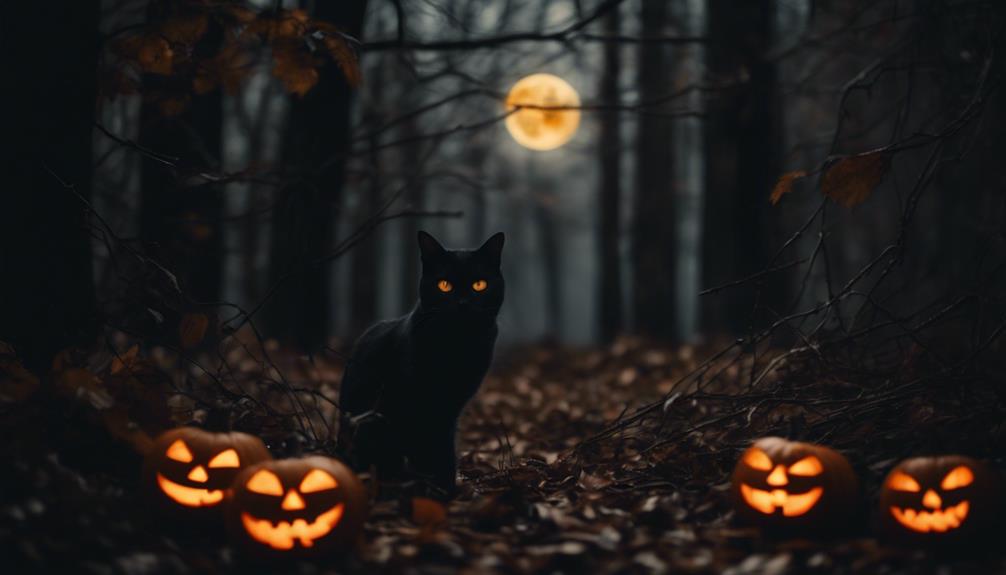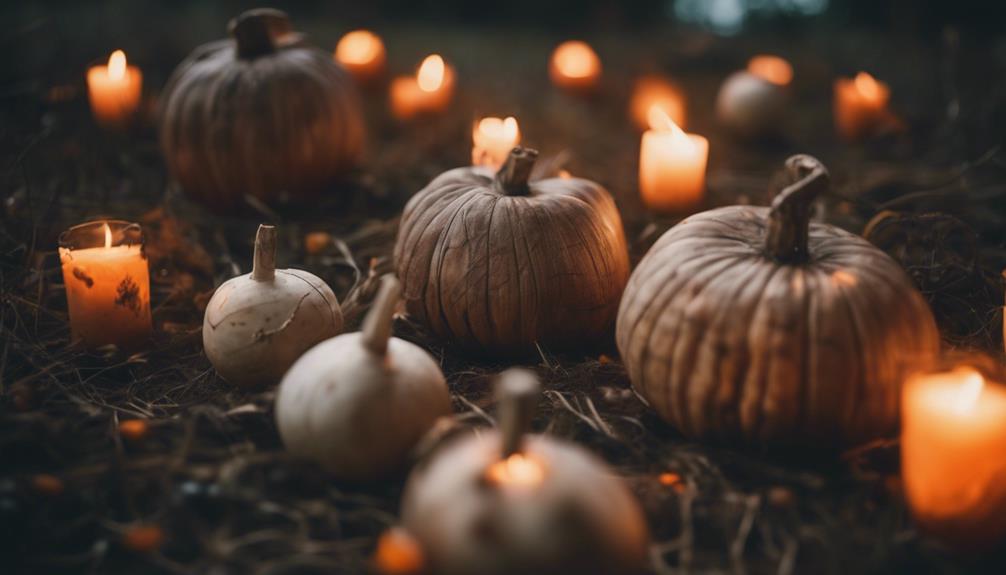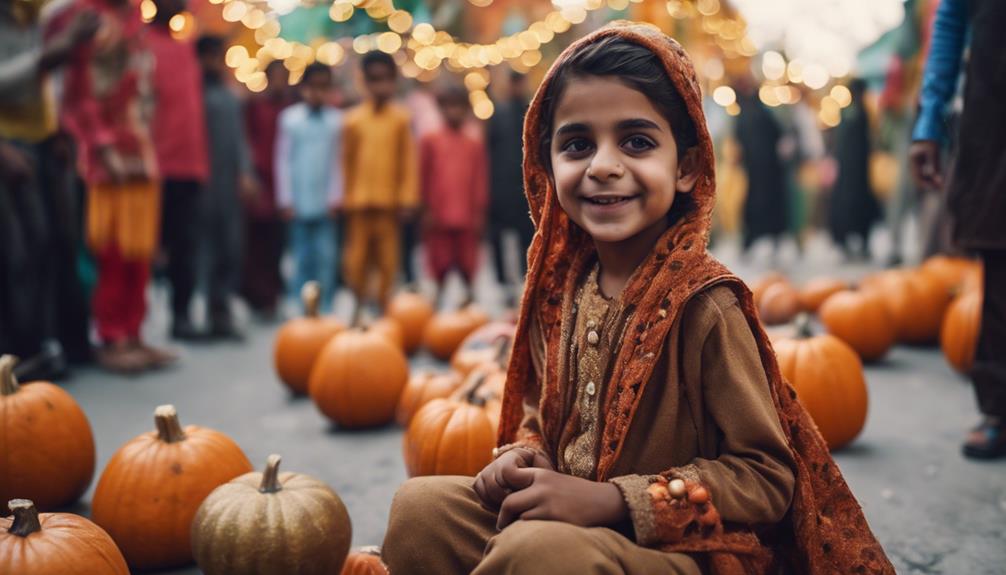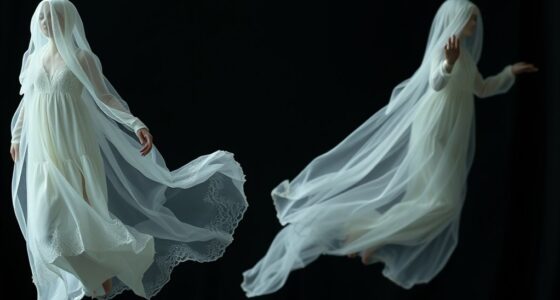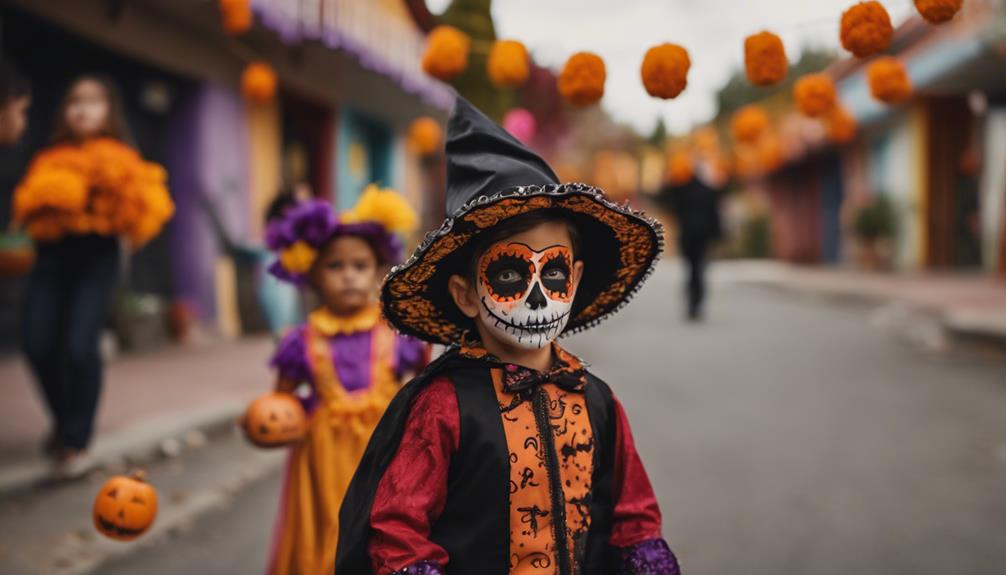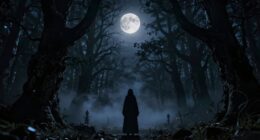Contrary to common belief, Halloween isn't explicitly deemed evil in the Bible. The Bible doesn't mention Halloween specifically. Various Christian perspectives exist about the observance and roots of Halloween. Christians hold diverse views on the holiday. Some see it as a harmless tradition, while others oppose it due to its origins in pagan festivals. Understanding the different perspectives on Halloween can provide insight into its significance in modern society. Explore further to learn about the origins, influences, and different viewpoints related to Halloween.
Key Takeaways
- Halloween's origins are rooted in Celtic and later Christian traditions, not directly addressed in the Bible.
- The Bible does not specifically mention Halloween as it is a modern cultural event.
- Some Christian denominations have varying views on participating in Halloween festivities.
- The Bible warns against practices like witchcraft and consulting spirits, which some associate with Halloween.
- The interpretation of Halloween's "evil" aspects varies among different religious groups and individuals.
Origins of Halloween
The origins of Halloween can be traced back to the ancient Celtic festival of Samhain, signifying a significant shift in their seasonal calendar. Halloween, known as All Hallows Eve, falls on the evening before All Saints Day in the Christian calendar. Pope Gregory III strategically aligned the feast of All Saints Day with the Celtic festival of Samhain, creating the precursor to what's now celebrated as Halloween.
This ancient Celtic festival had pagan practices intertwined with it. People believed that bonfires and costumes could ward off evil spirits and help communicate with the dead. The merging of Celtic pagan traditions with Christian customs over time has shaped the way Halloween is observed today.
As you ponder the origins of Halloween, it becomes evident that this holiday has a rich history blending ancient Celtic traditions with Christian influences. This fusion of customs has contributed to the unique and multifaceted nature of Halloween as it's understood today.
Pagan Influences on Halloween

Delving into the pagan influences on Halloween sheds light on the ancient practices that have shaped this modern holiday. Halloween's roots trace back to the Celtic festival of Samhain, a time to mark the end of the harvest season and the onset of winter. During Samhain, pagan rituals like bonfires, offerings to spirits, and donning costumes to ward off evil were common.
As Christianity spread, these pagan traditions intertwined with Christian practices, resulting in a fusion of beliefs and customs. Some Christians view Halloween's pagan influences through a critical lens, as they may conflict with Biblical teachings that caution against engaging in practices associated with darkness and the occult.
Understanding the pagan origins of Halloween provides Christians with the knowledge needed to make informed decisions about their involvement in the holiday. By weighing the historical significance of these pagan rituals against their Christian perspective, individuals can approach Halloween celebrations with discernment and awareness.
Biblical Perspectives on Halloween

Exploring the biblical perspective on Halloween sheds light on how Christians can approach this holiday in accordance with their faith. The Bible does not explicitly mention Halloween, but it addresses themes like darkness, evil, and discernment, offering principles for Christians to ponder when maneuvering through modern-day Halloween celebrations. Verses such as Ephesians 5:11 warn against participating in works of darkness, which resonates with concerns about certain Halloween practices. Scriptures like Romans 13:12 encourage believers to clothe themselves in the armor of light and resist evil spirits, relevant to discussions about Halloween's associations with darkness. Some Christians turn to passages like Isaiah 5:20 for guidance in distinguishing between good and evil, shaping their views on Halloween observance. While the Bible may not directly address Halloween, its teachings provide a framework for Christians to evaluate and approach the holiday in light of biblical principles.
| Bible Verses | Relevance to Halloween |
|---|---|
| Ephesians 5:11 | Caution against works of darkness |
| Romans 13:12 | Encouragement to resist the devil |
| Isaiah 5:20 | Guidance in discerning good and evil |
Christian Views on Halloween
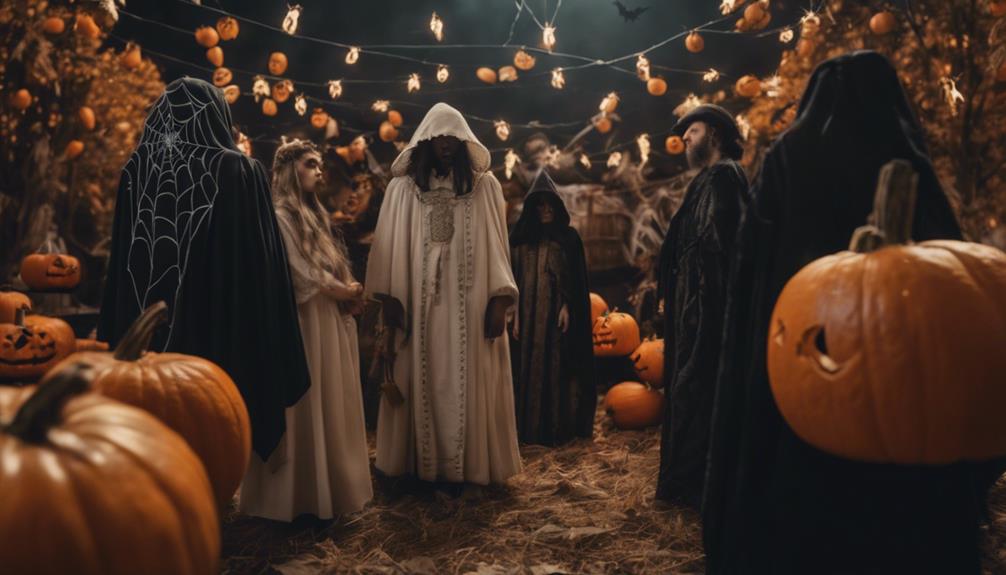
What're the diverse perspectives among Christians on Halloween?
Christian views on Halloween range from acceptance to avoidance, reflecting varying beliefs about the holiday's alignment with biblical teachings. Some Christians view Halloween as harmless fun, while others see it as potentially involving darker aspects and participating in unfruitful works of darkness.
To navigate these differing opinions, believers often turn to principles from Scripture to guide their approach to Halloween. In considering participation in this holiday, Christians weigh the balance between enjoying festivities and upholding their faith values.
Some Christians choose alternative celebrations like Harvest Parties to avoid what they perceive as the potentially negative influences of Halloween. This diversity of opinions within the Christian community stems from interpretations of biblical teachings regarding fellowship with the unfruitful, avoiding the abominations of those nations, and refraining from practices like prayers for the dead.
Halloween and the Occult
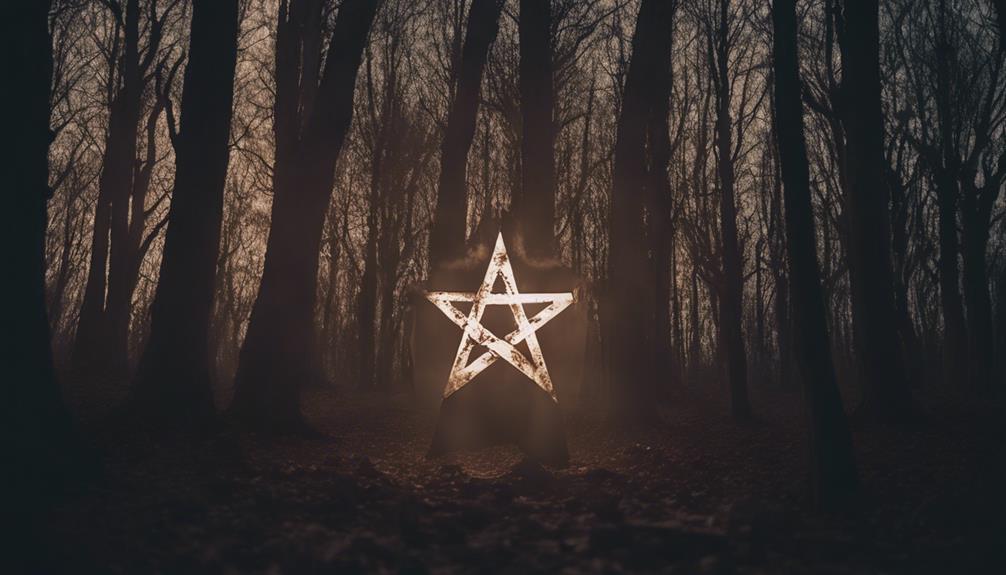
Halloween's association with the occult raises concerns among Christians due to its pagan origins and promotion of darkness, contradicting biblical teachings against such practices. The pagan roots of Halloween are deeply intertwined with occult practices that go against Christian beliefs.
While the Bible doesn't directly address Halloween, its principles caution against involvement with the occult and activities associated with darkness. Both the Old Scripture and New Scripture condemn occult practices, which are often linked to Halloween festivities.
The focus on evil spirits and dark rituals during Halloween stands in stark contrast to the light and righteousness emphasized in Christian teachings. Many Christians find it conflicting to participate in Halloween celebrations that glorify elements contrary to their faith.
It's essential for believers to discern the origins and practices associated with Halloween to make sure they align with their Christian values and principles concerning light and darkness.
Discernment in Halloween Celebrations
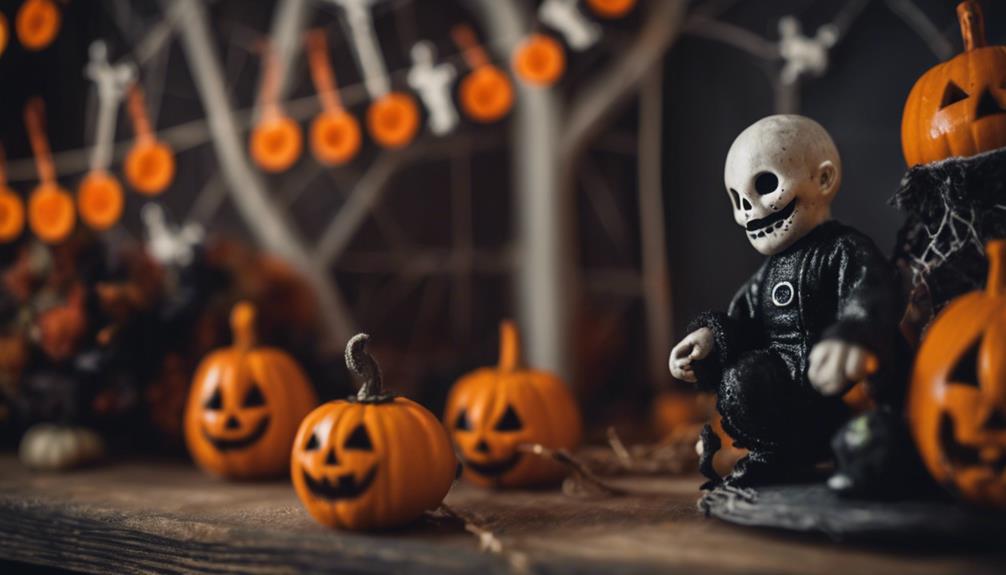
When considering Halloween celebrations, it's important to exercise discernment by evaluating activities through a biblical lens.
Biblical principles and values can guide your decisions on how to honor God in your Halloween festivities.
Avoiding practices contrary to godly themes, like witchcraft and sorcery, can help align your celebrations with biblical teachings.
Biblical Perspective on Halloween
In considering the Biblical perspective on Halloween, it's essential for Christians to exercise discernment in their participation in Halloween celebrations, aligning their actions with virtuous and praiseworthy principles outlined in Scripture. When engaging in Halloween festivities, it's important to remember the following:
- Avoiding Witchcraft and Sorcery: The Bible warns against involvement in practices related to witchcraft and sorcery, which are often associated with Halloween themes.
- Shunning Darkness and Evil Deeds: Christians are called to steer clear of activities linked to darkness and evil, urging them to uphold values of light and righteousness.
- Practicing Discernment in Participation: It's crucial for believers to carefully discern their involvement in Halloween events, ensuring that their actions reflect the virtues and teachings upheld in the Bible.
Honoring God in Celebrations
Exercise discernment in your Halloween celebrations by aligning your activities with biblical principles to honor God in your festivities. When evaluating your participation in Halloween events, consider whether the activities align with the teachings of the Bible. Honoring God in celebrations involves choosing activities that reflect your faith and values. Here is a table to help you discern which activities are in line with biblical principles:
| Activities | Alignment with Biblical Principles | Honoring God |
|---|---|---|
| Attending church events | Encourages fellowship and worship | Yes |
| Engaging in prayer and reflection | Deepens spiritual connection | Yes |
| Decorating with positive themes | Promotes light over darkness | Yes |
| Avoiding occult practices | Upholds Christian beliefs | Yes |
Frequently Asked Questions
Is It Okay for Christians to Celebrate Halloween?
It's absolutely okay for Christians to celebrate Halloween. Many see it as a chance to engage with their community and enjoy festive traditions. Different denominations have varying views, with some fully embracing the holiday. Some even incorporate religious practices like attending All Hallows Eve Mass.
Ultimately, it's a personal choice guided by one's faith and interpretation of Halloween's significance. Embrace the festivities in a way that aligns with your beliefs and values.
What Does Halloween Mean in Christianity?
In Christianity, Halloween, or All Hallows Eve, is the evening before All Saints Day, a time to honor martyrs. It has roots in the Celtic festival of Samhain, symbolizing the thinning veil between the living and the dead.
Some Christian denominations see it as a chance for community connection and engaging with secular culture. Catholics can fulfill their All Saints Day duty through All Hallows Eve Mass and traditions like carving pumpkins.
Is Halloween an Evil Day?
Halloween is often linked with spooky traditions and costumes, but whether it's truly evil is a matter of perspective. Some people view Halloween as a harmless, fun celebration, while others believe it can promote dark or occult themes.
Ultimately, how you opt to engage with Halloween depends on your personal beliefs and values. It's crucial to ponder what aligns with your faith and convictions when deciding how to approach this holiday.
Is It a Sin to Dress up for Halloween?
Dressing up for Halloween can be a fun and enjoyable activity, as long as it is done in a manner that upholds positive values and does not promote anything dark or evil. It's important to choose costumes that align with wholesome principles and reflect positivity. Remember to be creative and have a good time while keeping in mind your personal beliefs and conscience. By making choices that bring happiness without conflicting with your faith, you can fully embrace the spirit of Halloween in a way that feels comfortable and right for you.
Your decision on how to participate in Halloween should be guided by your conscience and beliefs. Make choices that bring joy without compromising your faith.
Conclusion
To sum up, Halloween's roots are intertwined with pagan traditions, but its modern celebration varies among individuals and communities. Like a tapestry woven with threads of history and culture, Halloween can be seen as a reflection of diverse beliefs and practices.
It's important to approach this holiday with discernment, understanding the different perspectives and meanings attached to it. Whether you choose to participate or not, the metaphorical mask of Halloween reveals a complex tapestry of human expression and tradition.
